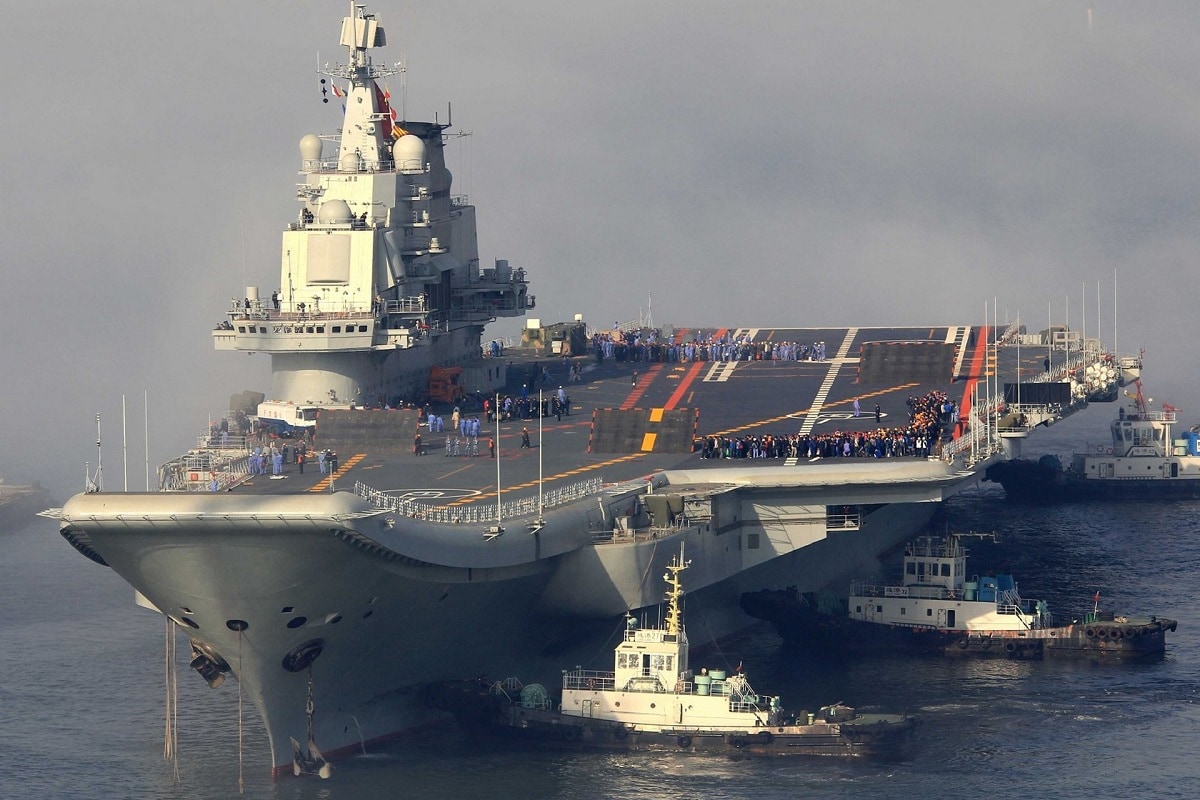China launched its third aircraft carrier, the Fujian, just last week– and the Western press took notice. NPR reported that China had reached “a milestone as it seeks to extend the range and power of its navy.” CNN exclaimed that the Fujian features “new combat systems that experts say are fast catching up with the United States.” Bloomberg called the launch a “watershed moment” for Chinese President Xi Jinping’s efforts to catch up to America militarily. The Guardian rated the Fujian as a “significant military advance for the Asian superpower.” The media attention is well earned; the moment is significant.
Why Fujian Matters
Nations can project power abroad with two primary methods. One, is the overseas military base. The second is the aircraft carrier. A nation’s ability to project power abroad can be measured roughly in terms of their overseas bases and their aircraft carrier fleet. No nation rivals the United States with respect to either metric. In terms of overseas military bases, the US has 750 sprinkled throughout the globe in 80 different nations. The next closest nation? The UK, with just 145 bases. Russia has a few dozen. China has just five. But the Chinese have clearly resolved themselves to expand beyond their domestic territory – building airfields in the South China Sea, investing in Africa and Latin America, promoting the Belt & Road Initiative, and recently, opening a new military base in Equatorial Guinea. The Chinese are ascendant and, concerningly, appear to be revisionist.
Tracking global aircraft carrier metrics tells a similar story. The US is unrivaled in either quantity or quality of their aircraft carrier fleet. With eleven super carriers, the US can park squadrons of aircraft off whichever coast they choose. And until yesterday, no other nation had more than two aircraft carriers. Russia barely has one. But with the Fujian’s launch, China indicates again that they are prospering – and that they are ambitious.
The Fujian is the first supercarrier created by any nation other than the US or the UK. Built entirely within China, the Fujian is a roughly one thousand-foot vessel that could displace as much as 100,000 tons. China’s new vessel will incorporate modern tech, too. Replacing the somewhat rudimentary “ski jump” launching mechanism found on early Chinese carriers, the Fujian will incorporate integrated electric propulsion (IEP) and electromagnetic catapults to launch aircraft, a system known as CATOBAR.
“To be clear, this will be the largest and most advanced aircraft carrier ever built outside the United States,” Robert Farley wrote for The Diplomat. “This ship represents China’s maritime ambitions, and tell us a great deal about how much Beijing values the maritime domain.”
Once operational, the Fujian will join what is already the world’s largest navy. Over the last few decades, China has committed to a massive ship-building spree, with its total fleet size now approaching 800 vessels. By comparison, the US has 484 warships. China’s commitment to naval power is particularly concerning to the island nation of Taiwan, the existence of which China refutes. Perhaps a coincidence, perhaps naked antagonism, the Fujian is named for the Chinese province that sits against the Taiwan Strait – a mere 80 miles of sea separating mainland China from Taiwan.
As China has never used a CATOBAR system before, they may require time to familiarize themselves with the technology, which would delay the Fujian from becoming operational. Yet, the ship will likely be operational around 2025, at which point China will have a markedly increased capacity for power projection.
Harrison Kass is the Senior Defense Editor at 19FortyFive. An attorney, pilot, guitarist, and minor pro hockey player, he joined the US Air Force as a Pilot Trainee but was medically discharged. Harrison has degrees from Lake Forest College, the University of Oregon, and New York University. He lives in Oregon and listens to Dokken.

